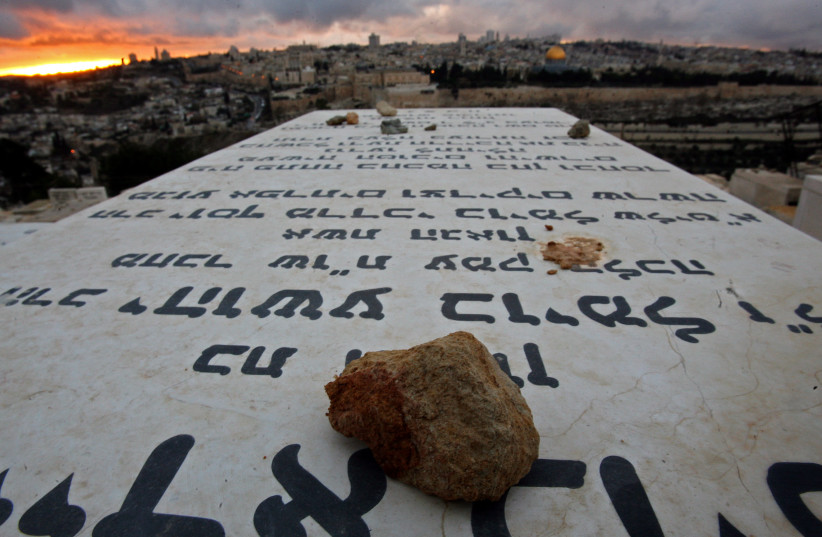MKs Ze’ev Elkin (United Right) and Moshe Sa’ada (Likud) presented a bill Tuesday that would enable the burial in Jewish plots of Israeli terror victims who are defined as “lacking religion”.
According to the bill’s explanatory section, some 500,000 Israelis are listed in Israel’s population authority as “lacking religion,” most of whom came from countries that were part of the USSR.
Although these citizens are not Jewish according to halacha, they are “children and grandchildren of those who chose to link their fate to that of the Jewish people in the Land of Israel.”
According to the bill, terrorists do not differentiate between these and other Israelis, and their families should therefore be allowed to bury their loved ones alongside Jews in standard cemetery plots and not in segregated ones. This was backed up by halachic rulings of leading rabbis, the bill’s sponsors wrote, and the IDF has already operated according to these rulings for burials of fallen soldiers.
The bill will now face a preliminary vote in the Knesset plenum, after which it will move to one of the Knesset committees. However, the Knesset is scheduled to go on a three-month summer recess on July 28 and it is unlikely to pass into law beforehand.

Lobby groups help push through bill
Two organizations who lobbied for the bill included the One Million Lobby, which represents the needs of Russian-speaking Israelis before decision-makers, and “ITIM,” which advocates for a more inclusive religious establishment in Israel.
Alex Rif, CEO of the One Million Lobby, called the bill proposal a “repairing of a historic moral and Jewish injustice of the first degree,” and mentioned the cases of two victims of the October 7 Hamas massacre who were buried outside of cemetery fences due to their status as lacking religion.
Adv. Ohad Veigler, head of ITIM’s public policy division, added that the “chief rabbinate has not even been willing to discuss the issue,” and therefore the bill proposal was important, especially since it came from both coalition and opposition MKs.